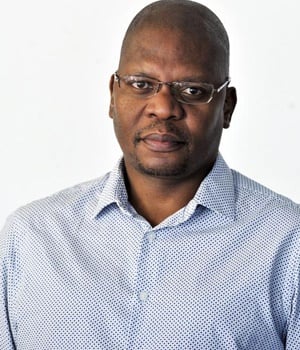
The cheesy picture of the reunion of the victorious 1995 Springboks, who became the first post-apartheid team to win a world tournament, said it all.
The equally cheesy caption read: “Still one team. Still one country.”
In remembering that victory, then Springbok captain Francois Pienaar was full of sugary comments.
“What happened 20 years ago is what made this country stand up for the first time and we became a nation for the first time. We did not know it would be that big. We had a sense that it was something extraordinary but in our wildest dreams we couldn’t have imagined what happened 20 years ago,” he said.
SA Rugby Union president Oregan Hoskins threw in his 20 cents’ worth, saying “this team helped Nelson Mandela unite a country”.
“It was a moment that astonished a nation and provided one of the foundation stones for the country we were to become. Mr Mandela together with that Springbok team pointed a way forward for the future for people and 20 years later, that day still has massive resonance,” he gushed.
Under normal circumstances, the scenes and words from Ellis Park (or whatever they call it nowadays) would result in goose bumps. But it doesn’t. Instead it is a reminder of just how much we love myths in this country.
In this group picture sits Chester Williams, a lone black man among his previous team-mates. His lonely presence in the 1995 team was excusable because we were just one year into democracy and the transformation process was in its infancy. So one could say he was a pioneer in a Springbok team that would one day be truly representative.
But then take a look at the team that won the 2007 rugby World Cup in France. Twelve years after the “unifying” 1995 victory, the sport had taken a really tremendous transformation leap: there were now three black players in the squad.
From the lone Williams there was now the trio of Bryan Habana, Akona Ndungane and Ashwin Willemse in the squad. Wow, what progress!
Further leaps were made in the 2011 squad. Four years later, there were now more black players. Ndungane and Habana were joined by Tendai Mtawarira, Ricky Januarie, JP Pietersen and Chiliboy Ralepelle, with three of them even getting some starting line-up action. But the team picture looked much better.
Yesterday, Springbok coach Heyneke Meyer took another leap, adding maybe another darkie to the team photograph. This picture will basically be the same when the Beyoncé-loving minister of sport bids them farewell when they head off to England for the rugby World Cup.
I am sure that this lowly newspaperman might be seen as a bit of a spoilsport, but we really need to get over the myth that 1995 was some mystical moment in the history of our nation.
What happened on that day was that a predominantly white national team with a predominantly white fan base won the World Cup in front of a stadium of mainly white people who overwhelmingly embraced the nation’s black president. Period.
That day may have inched the nation forward ever so slightly in that blacks joined whites in celebrating a common victory, but that was it.
If that day had massive resonance, as Hoskins says, then why has rugby not embraced this meaning? Why is the rugby community still living in a pre-1995 South Africa in which white is the norm and the inclusion of blacks in the picture is a departure from the norm.
The truth is that 1995 actually provided a distraction from the transformation project. In the mushiness of the multiracial hugs and kisses of that day, we forgot that change was meant to be painful and not an exhilarating, orgasmic event.
And so we forged on, with whites believing that their embrace of Mandela completed the task of nation-building.
Workplace transformation continued to be a tick-the-box exercise for corporates. As did the change in economic ownership patterns, as companies viewed economic empowerment as an “argh, we have to do this thing” rather than an imperative in normalising society.
The black middle class grew because government policy forced a reluctant private sector to include employment equity and economic empowerment on scorecards.
Today, two decades after that supposed magical moment, South Africa remains a divided nation.
Racism is rife. Rugby franchises have to be forced at gunpoint to have transformation as an objective. Coaches such as Meyer still find it strange that anybody would find it strange that the teams they pick do not look like the nation they represent. The Beyoncé-loving minister eggs them on as if there is nothing wrong with the picture.
It is time we stopped living the myth of 1995 and faced the reality that we are not yet one team and not yet one nation. Building a nation is more than a beer advert. It is very hard work




 Publications
Publications
 Partners
Partners








